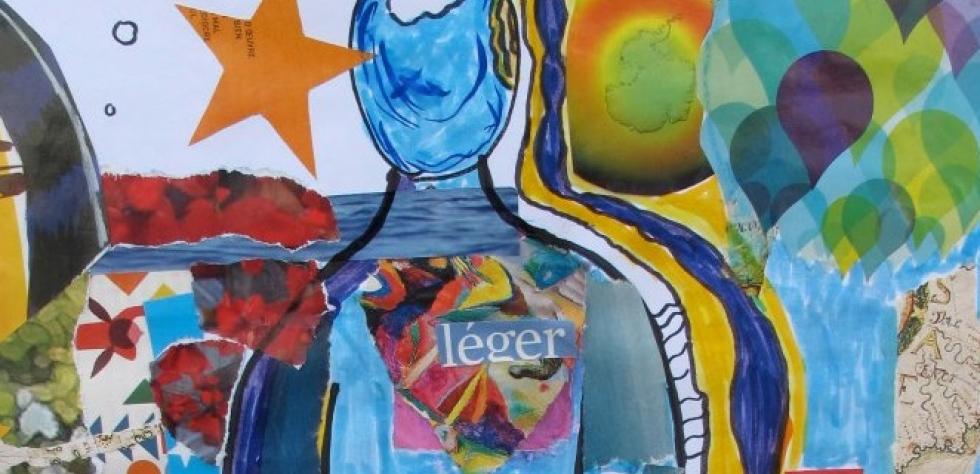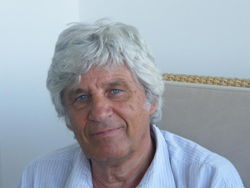All the works presented on this site help to shed some light on the psychopedagogy of perception, both philosophically and conceptually, in terms of study methodology and epistemological references (see epistemology methodology) Or through its various practical variations: health, care and training; In all proposals to accompany individual or collective change, personal or professional change; In the field of education and especially with children (see pedagogy of the child); In the artistic field and the work of movement; In all forms of biographical explorations of the relation to self, to others, to the world; In the field of manual therapy through fasciatherapy as developed by Danis Bois.
We propose here a practical summary of this concept which is an accompanying practice, but also, for the accompanied persons, a way of life. The scientific articles proposed throughout the text are those which contribute most explicitly to its definition under one of the angles mentioned.
Epistemological field and theoretical framework
Perceptual Psychoeducation is a discipline that sits where psychology and the sciences of education meet. Perceptual Psychoeducation also fits within the transdisciplinary objectives of personal development - as referenced by UNESCO (The International Standard Classification of Education (ISCED) and Eurostat - which encompasses any activity that contributes to the development of individual, social, intellectual, behavioural, relational, mental and learning skills and capabilities that constitute a process of personal transformation for the individual.
Within this field, we are studying a psychoeducational model that relies on perceptual resources and potentialities, both as a focus for apprehending the processes involved in the learning and development of attitudes and behaviours, and as a means of action and regulation. Perception is seen as a qualitative mode of relating, as a way of grasping and discriminating information, as a way of understanding things, and finally of perceiving and experiencing oneself in one’s life. Perception is involved in all the sectors of the individual’s relational life : ‘how I perceive myself’, ‘how I perceive others’ and ‘how others perceive me’. As such it concerns primarily issues related to support, coaching and mentoring processes.
Perceptual Psychoeducation as conceptualized by D. Bois shares principles with the humanist (Rogers, Alport, Maslow), positivist (Seligman, Csikszentmihalyi) and existential currents of psychology (Binswanger). It is clearly centred on the individual and not on a pathology. The way in which the practitioner and the individual relate is empathic, benevolent and non-judging. In addition, through the bodily mediation it offers, Perceptual Psychoeducation fosters the development of the individual’s ability to self-relate. This allows them to re-connect with their body and themselves, to be more in tune with the present moment and to perceive anew the problematic situation they face. This approach also endorses the notion of actualizing tendency as defined by C. Rogers, in that it is an approach based on the hypothesis that there is within human nature a fundamental organismic process that tends towards the very best and underlies the individual’s ability to find their own solutions. To this, we add a further dimension - the inner movement - that we posit to be the tangible expression of Roger’s ‘organismic force’. Finally Perceptual Psychoeducation focuses on the inner phenomena lived, thus placing lived experience, particularly bodily sense-felt experience, at the centre of its process.
The concept of perceptual educatibility (éducabilité perceptive, Bois, 2007) at the root of Perceptual Psychoeducation is founded on three notions. The first postulates that, under certain learning conditions, it is possible to enrich perceptual capabilities not sufficiently explored previously. The second advocates the primacy of perception in all cognitive activities and sees it as a resource that optimizes them. The third considers that perception supports a qualitative attention to self, others, the social environment and the world. To this end all the senses are engaged, such as hearing that is seen as the capacity to listen and hear the other and the world, and bodily perception that is viewed as an act of self-perception through the inner tact that stimulates the development of self-awareness. This concept has been developed further in the research of Berger (2004) and Bourhis (2007).
Definition of Perceptual Psychoeducation’s eight key concepts
Through the research carried out within the CERAP, we have developed and clarified eight key concepts that bring innovative perspectives to the field of personal development and support-, coaching- and mentoring- based practices. Each of these key concepts are discussed in the articles and research papers that are cited on this website, some of which are referred to in the present article.
- The concept of somato-psychic unity (or body-mind unity) represents a particular mode of action that, as a result of using the tools of perceptual psychoeducation, engages the individual simultaneously at the somatic and mental level. The somatic techniques used lead to mental shifts that bring possible solutions. This concept underlies that of the psychotonus - the organic expression of the interaction between body and mind. This particular tissular tonus is mobilised using the practical tools of Perceptual Psychoeducation and appears as a marker of the state of mental tension. (ex. Courraud, 2007 ; Bertrand, 2015)
- The concept of perceptual-cognitive modifiability is founded on the fact that the act of perceiving is the starting point of the cognitive activity and of the unfolding of meaning at the origin of the process of transformation of the individual. It modelises the transformational process in 7 stages : the lived moment of experience, conscious experiencing, learning arising from the experience, awareness of the meaning (for the person’s life), the decision to take action, implementing the decision, reflecting back on the change and regulating (Bois, 2005 ; Santos, 2006)
- The concept of actuative reciprocity defines how intersubjectivity is engaged in empathic relationship. It unfolds within corporeality and results in internal information circulating between the agents of the relationship. (Dubois, 2010 ; Bourhis, 2007, 2012)
- The concept of out-of-the-ordinary experience sets the model of support offered by Perceptual Psychoeducation in the field of experiencial learning, in that it is through experience that learning occurs. The out-of-the-ordinary element of this is that the body-focused experience offered is unusual and stimulates new attentional, perceptual and reflective abilities that bring about new understanding. (Bourhis, 2007, 2012)
- The concept of processual development of the relationship to the Sensible models the various constituents of the bodily sense-felt experiencing that the person relates having lived during their out-of-the-ordinary experience : warmth, wholeness, presence, sense of existence and of existing. These items lead to a hermeneutic of the lived experience. (Bois, 2007)
- The concept of ‘forthcoming’ gives priority to the experiencing that relates to the now moment of the experience as it unfolds. In the context of a Perceptual Psychoeducation session, the facilitator ensures that the attention of the person is turned towards the new information that is arising and is likely to bring insights on dark areas of the past. (Bois, 2009)
- The concept of knowing through contrast is specific of the way in which sense and meaning takes form in a Perceptual Psychoeducation session. The new bodily experiencing that arises reveals previous postures and attitudes. By contrasting these elements, the person will begin to unfold their own process of transformation. (Bois, 2007)
- The concept of informed directiveness refers to a verbalisation protocol that facilitates making sense of what is implicit in the bodily experience. This concept rests on the need to actively stimulate the attention of the person through targeted prompts to allow them to describe all the nuances they lived during the out-of-the-ordinary experience. (Bois, 2005 ; Rosenberg, 2007)
Practical modalities
All the learning tasks offered through Perceptual Psychoeducation are designed to stimulate maximum perception through body-focused experiencing. As such the body we refer to is resolutely a phenomenal body, a Sensible (*) body, which supports and is active in learning.
Perceptual Psychoeducation is put into practice in support-, coaching- and mentoring-based processes through the following modalities : relational touch, internalised movement expressivity, sensorial introspection, one-on-one or group verbal dialogue, and writing.
Relational touch acts as a vehicle for learning to be in relationship with self. It allows the individual to focus their attention on the various bodily experiences generated by the touch and to acknowledge the quality of presence they have to themselves. It also nourishes reflection on bodily sensing which then becomes truly experiential and leads to a gradual broadening of perspectives. (Courraud, 2007 ; Bourhis, 2007)
Movement expressivity is an invitation to externalize the subtle motions of inner experiencing. By doing this, it allows the individual to dare to appear in their originality and their own particular richness. This process unfolds through the innovative and specific movement practice of the Sensible. (Didot-Rigaux, 2013 ; Devoghel, 2015)
Sensorial introspection is a meditative practice that develops presence to self and body. It stimulates attentional, perceptual, cognitive and mental skills to serve the fulfilment of human potential in health and wellbeing. It is facilitated through a guided verbal protocol that allows participants to grasp, discriminate and manage in real time emotions, negatives thoughts, erroneous representations and in more concrete terms to have an effect on health, anxiety and stress. (Bourhis, Bois, 2010 ; Nottale, 2015 ; Cencig, 2014 ; Rapin, 2012)
Verbal facilitation, one-on-one or in a group, provides a space for verbal expression that allows the person to articulate their life’s problems in a way that is in line with humanist principles and more particularly the non-directiveness of Carl Rogers. To this we add the concept of informed directiveness of Bois (2005) to draw sense and meaning from the sense-felt experience and explore how this may feed into daily life. It is a moment of verbalising that can unfold in real-time of the experience, immediately after or much later. (Rosenberg, 2007 ; Schreiber, 2011)
Writing facilitation is a tool that allows the person to leave a trace of their experience so that in time they are able to validate it and open it out to others, a process that will lead to new understanding. It usually begins in the form of a log book or a personal journal which is then shared with the practitioner allowing new meaning to emerge from the process. (Hillion, 2010)
The main applications of Perceptual Psychoeducation
Perceptual Psychoeducation offers wellness, growth and change management professionals an added tool to enrich their own practice.
As demonstrated throughout our website, Perceptual Psychoeducation is an approach that, by nature, is both concerned with all the dimensions of the individual - physical, emotional, mental and spiritual - and centred on human potentiality. As such it is currently finding applications in a great variety of fields such as health and wellbeing, education and support for children, adult education, professional coaching, performing arts and the living arts.
Scientific and practical goals
By offering epistemological, methodological and practical tools to chart the process of transformation of the individual and the development of human potential, Perceptual Psychoeducation contributes to raising the profile of the personal development field in the scientific world.
It welcomes researchers and practitioners who wish to participate in validating and giving value to support-, coaching- and mentoring-based practices that are founded on human subjectivity and how it can be studied and presented in an objective way.
It suggests a posture that is simultaneously one of observer and researcher engaged in the field to chart the living reality of experience and of the profound meaning of life.
(*)We use the French term here, not the English that carries a slightly different meaning. What we call the ‘ Sensible’ is…..


